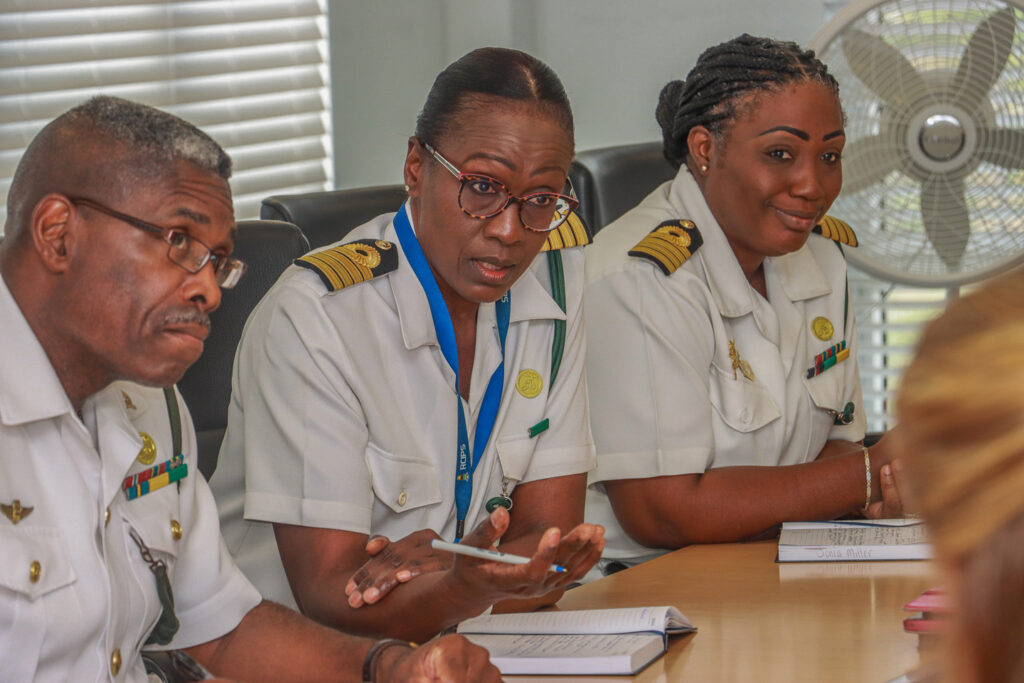Royal Bahamas Defence Force leaders participate in a January 26, 2024, discussion with U.S. officials about developing a Women, Peace and Security initiative. MARINE SEAMAN RICKEY SEALEY/ROYAL BAHAMAS DEFENCE FORCE
THE WATCH STAFF
U.S. officials visited the Bahamas in late January 2024 to discuss a strategic initiative to promote gender equality and equity in the Royal Bahamas Defence Force (RBDF).
RBDF Commodore Raymond King and his executive leadership met with Tiffani Phillips, U.S. Northern Command’s (USNORTHCOM) gender advisor, Dr. Samantha Ross of the Impact and Women, Peace and Security Council, and Capt. Jonathan Griffin from the U.S. Embassy in the Bahamas to discuss an update to the initiative known as the Gender Optimization Support Plan.
The group discussed a program designed to prevent gender-based violence, sexual assault and harassment and provide resources and support to RBDF members who have experienced it. “Commodore Raymond King remains unwavering in his dedication to cultivating a High-Performance Workforce centered on Performance Excellence. Part of this commitment includes creating an inclusive working environment that empowers all personnel, irrespective of gender,” stated a news release from the RBDF. “Through these measures, the RBDF reiterates its pledge to excellence in safeguarding our heritage and upholding the highest standards.”
In 2011, the U.S. published a National Action Plan based on the 2000 UN Security Council resolution on Women, Peace and Security. The U.S. passed the Women, Peace and Security Act in 2017, described as “the first legislation of its kind in the world to acknowledge the multifaceted roles of women throughout the conflict spectrum and calls on the U.S. government to promote the meaningful participation and protection of women globally.” In 2022, the U.S. Department of Defense (DOD) established policies and integrated training for WPS into professional military education institutions, as well as into security cooperation activities, according to the National Defense University.
At USNORTHCOM, WPS initiatives are based on evidence linking women’s safety and security to a country’s stability. “Persistent barriers to women’s advancement in defense undermines organizational effectiveness and national security,” a USNORTHCOM news release states.
“Partner nations that take achieving WPS objectives seriously probably also take supporting and protecting human rights seriously. In addition, integrating women into security and overall gender equality has been linked to durable post-conflict peacebuilding, societal stability, peaceful conflict resolution, and higher overall socioeconomic development,” states an article from the National Defense University.

